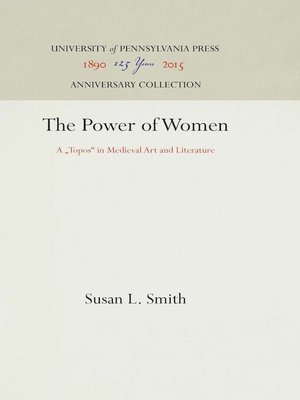The Power of Women
ebook ∣ A "Topos" in Medieval Art and Literature · Anniversary Collection
By Susan L. Smith

Sign up to save your library
With an OverDrive account, you can save your favorite libraries for at-a-glance information about availability. Find out more about OverDrive accounts.
Find this title in Libby, the library reading app by OverDrive.



Search for a digital library with this title
Title found at these libraries:
| Library Name | Distance |
|---|---|
| Loading... |
Eve tempting Adam with the apple, Delilah shearing Samson's hair, Phyllis riding the philosopher Aristotle like a horse—from the patristic period through the sixteenth century, examples of disorderly women such as these from the Bible, antiquity, and romance were cited to prove beyond any doubt that women exercise a power that no man, however superior his moral and physical qualities, can resist. An example of Latin topica, loci, or loci communes central to ancient rhetoric and medieval literature, the Power of Women topos illustrated how a woman could dominate, humiliate, and even destroy the man who loved her too well. Two or more infamous female figures were brought together to exemplify a cluster of interrelated themes: the wiles of women, the power of love, and the trials of marriage.
Susan L. Smith's comprehensive study of the Power of Women topos in written texts and in art emphasizes the critical phase of its development from the late twelfth to the end of the fourteenth century. During this period , she argues, traditional employment of the topos exclusively to condemn women and justify male authority underwent a dramatic shift as new voices (some of them female voices) appropriated the Power of Women to contest and relativize the misogynistic views it had been created to promote.
The Power of Women analyzes the topos's shifting operations in the context of ancient and medieval theories of rhetoric, particularly with respect to the practice of exemplification, which presuppose the possibility of conflicting judgments on disputed topics. Smith further supports her argument by reference to a wide range of recent theoretical writings by Mikhail Bakhtin and others.







